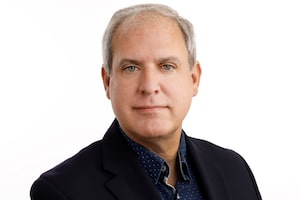Now we have seen the tantrums of the petulant children of Confederation.
The health ministers of Canada and all of its provinces and territories left a meeting in Vancouver on Tuesday whining impotently about how the other side was to blame.
The backdrop, as Canadians know, is a crisis in health care that extends pretty much across the country. Emergency rooms have been closed. There is a shortage of family doctors. There are surgery backlogs. B.C. Health Minister Adrian Dix, the meeting’s host, talked darkly about the crisis.
But in the middle of the day-long work session, around noon, the provinces sent out a news release complaining there had been no progress with the federal government in the meeting. In other words, they complained to the world outside that Ottawa was being intransigent while the feds were still in the room talking to them.
Federal Health Minister Jean-Yves Duclos withdrew from plans to draw up a joint communiqué with the provinces and hold a joint press conference at the end. He took his ball and went home.
Those are your health ministers in action. In the midst of crisis, they have delivered utter failure. Then they squabbled like children over who started it and who is to blame.
Gary Mason: A new pay model for family doctors might make B.C. the GP place to be
There are certainly talking points about the dispute, including multibillion-dollar figures and talk about conditions and data and fair shares and tax points.
But at this point, it is clear who should be blamed: All of them. The provinces and the feds.
The public might wish a pox on all their houses, but it would only add more strain on our crumbling health networks.
The dire condition of those networks is pretty clear. New Brunswick Premier Blaine Higgs has been firing health-board officials. In Quebec, Health Minister Christian Dubé recently outlined a plan to cope by steering patients away from overburdened emergency rooms.
Yet health ministers couldn’t get through a whole day working together.
Their differences at this point are about posturing.
There is, of course, a disagreement over money. The provinces ask for a whopping additional $28-billion per year. Prime Minister Justin Trudeau’s federal government hasn’t said exactly what they are willing to pay, but in the 2021 election campaign they promised $25-billion for various health items over five years, roughly $5-billion a year.
But the two sides haven’t really got to the haggling over money yet, because they disagree about the form of a deal.
The provinces want Ottawa to take on more of the burden of health care overall, adding billions to the Canada Health Transfer. Mr. Trudeau’s government wants to be able to tell voters it is directing sums to certain things: family doctors, or mental health, or home care. And they want the provinces to publish data on outcomes, especially more up-to-date data, to show results.
At Tuesday’s ministers’ meeting, the feds said they would put more money into the Canada Health Transfer if the provinces agreed to provide better data. There was a data plan worked out by officials from Ottawa and some provinces, but the provinces couldn’t agree amongst themselves, so they wouldn’t discuss it at the meeting. In public, B.C.’s Mr. Dix argued that the provinces already publish enough data.
The message from provincial health ministers such as Ontario’s Sylvia Jones is that the provinces are already taking the steps to fix health care and Ottawa should just provide money to help pay for it. But if the provinces already have everything planned, it shouldn’t be that hard to outline – in general terms – what the federal money would go to, and what data would track the outcomes.
But let’s not let the feds off the hook here for their posturing, either.
Mr. Trudeau spent a chunk of the 2021 election campaign telling voters that a Liberal government would, over five years, spend $3.2-billion on family doctors, $4.5-billion on mental health, $525-million on substance abuse, and so on. He promised specific sums – usually relatively small when compared with provinces’ costs – for specific outcomes, even though health care is not in federal jurisdiction. Fourteen months later, Ottawa hasn’t actually proposed its own plan to refinance health care.
Mr. Trudeau noted this week that some provincial governments promised pre-election goodies to voters, but then, so did he, before the 2021 election in which the Liberal platform promised “better health care for everyone.” Maybe that will come one day, when Canada’s politicians grow up.
 Campbell Clark
Campbell Clark